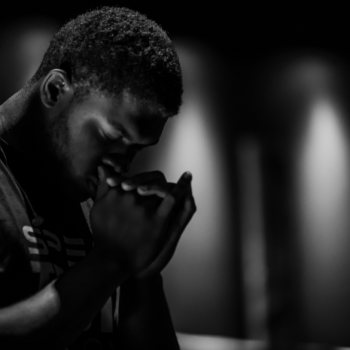For those of us who remember 9/11 vividly, it's difficult to believe that it was over ten years ago. In fact, enough time has passed that today's teens were still preschoolers or primary-age when the attacks occurred. Their memories of the event are less first-hand and more an amalgam of all the things they have seen, heard, and read in the years since.
In many ways, these youth can't really picture how different things were just a decade ago. On the day the towers fell, there was no Twitter, no YouTube or Facebook, no iPhones or iPads. Texting via a cellphone was new and many people hadn't even tried it yet. Today, photos and videos and news of such a terrorist attack would be updated second by second via the internet. But on that day in 2011, the news came in bits and pieces as we all struggled to understand what was happening and how to make sense of it.
Ten years later, time and distance from the actual event offer an opportunity to reflect on what happened to us that day and how we changed as a country. Hopefully, we are in a better place now to help young people understand 9/11. Ten years ago, we lacked the words and, in many cases, the theology to help adolescents process such acts of intentional violence.
So how should we talk with today's teens about 9/11? The truth is, it will depend on our audience. Those of us who work with youth in schools, clubs, or church settings are each the expert when it comes to those teens in our care. Ultimately, we are best able to discern how to challenge them to be thoughtful and honest in their discussion of an event that continues to affect the politics, economics, and social conditions of the United States.
Below are a few suggestions that might be useful in developing an approach with teens on this subject. These are just the beginnings of ideas that could be adapted to help you develop the right path for your youth:
- Ask: "Where was God on 9/11?" This question has almost become a theological chestnut at this point but, honestly, can your theology answer this question in such a way that you'd be willing to share your convictions with a person whose love one died in the planes or was burned to death in the Twin Towers? This is a tough question worth wrestling with as teens probe their own understanding of who and how God is in the world. Simply arguing that "God's ways are not our ways" leaves the door wide open to throw up our hands and do nothing in the face of an inexplicable God. Youth need to be challenged to be thoughtful about how they understand God in the face of violence and tragedy.
- Watch stories of 9/11 kids. Help your teens see the effects of that day on the children of 9/11 victims, many of whom are their peers. You can find a variety of video interviews with 9/11 children on YouTube.
- View a portion of the documentary Beyond Belief, directed by Beth Murphy. This film details how two 9/11 widows opted not to respond with anger or a call for revenge but rather reached out to help other widows in Afghanistan—women whose own husbands were casualties of the U.S. war in that country.
- Debate: violence versus God's love. Those who died on September 11 were not the only victims. Thousands more died in the subsequent wars in Afghanistan and Iraq, including U.S. soldiers and an estimated 100,000 civilians in Iraq alone. Challenge teens to consider if violence and war was the best response to September 11th. What other options could have been considered? What was the Christian response? Do we trust more in violence and might or in the love of God to heal the world?
- Share emotions through art. Help teens to share their thoughts and emotions about 9/11 and turn those feelings into an artistic expression, perhaps around the themes of forgiveness, peace, justice, mercy, reconciliation, and community. Their creations could be a vision of a better more hopeful world for the next generation of children.
- Invite others to share their stories. Invite young adults and older adults to come and share their stories of that day—where they were when they heard the news, what impact it had on them, and how they think the world has changed since then.
- Host a prayer vigil. It may be that teens have talked enough about this topic. What they really need is time to pray. Offer a place and time where they can experience silence and space to think and reflect thoughtfully.
- Do something about it. Share with youth about the "Jesus, Bombs, and Ice Cream" event being organized by Shane Claiborne. Invite their responses. They might even be inspired to create an event of their own.
Perhaps our greatest challenge on this anniversary of 9/11 is to help young people remain thoughtful, even in the face of what will likely be an onslaught of flag-waving and chest-thumping about how we are still "number one." The violence of that day, and the carnage in Iraq and Afghanistan, demand that we help our youth reflect faithfully and critically not only on what happened to our country ten years ago, but on the kind of world they want to create in the days to come.
9/7/2011 4:00:00 AM





